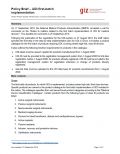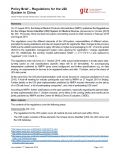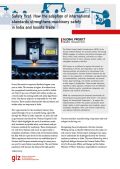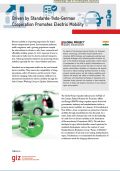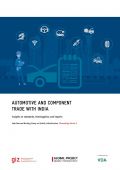About the project
Introduction to the Global Project Quality Infrastructure (GPQI)
A well-functioning quality infrastructure (QI) plays an essential role in reducing technical barriers to trade. Comprising all aspects of standards development, conformity assessment and accreditation, market surveillance and product safety as well as metrology, a coherent QI is designed to ensure the compliance of products with all relevant standards and the safe use of products by consumers. Moreover, it provides guidance for producers and enables innovation and efficient product development.
To promote the development of well-functioning and internationally coherent quality infrastructures, the German Federal Ministry for Economic Affairs and Energy (BMWi) has established the Global Project Quality Infrastructure (GPQI). The project aims to reduce technical barriers to trade and enhance product safety through bilateral political and technical dialogues on QI with some of Germany’s key trading partners.
The GPQI supports the political and technical dialogues and implements bilaterally agreed activities in collaboration with all relevant stakeholders. The project follows a demand-driven approach and puts high emphasis on active stakeholder engagement in the development of solutions. Cooperation topics can be proposed by industry associations, companies, technical organisations and government authorities from Germany and its partner countries. This ensures a high relevance of the topics, which are taken up by the bilateral political dialogue to jointly develop solutions. Topics range from the simplification of compliance procedures such as mandatory certification requirements, the implementation of international standards for IT security, and improvements in market surveillance for business-to-business products.
To achieve the project’s objectives, both sides implement activities such as conferences and workshops and conduct joint studies. Expert exchanges and delegation visits allow stakeholders from both sides to discuss and improve regulatory approaches, technical guidelines and share practical experiences on state-of-the-art topics to solve concrete problems.

